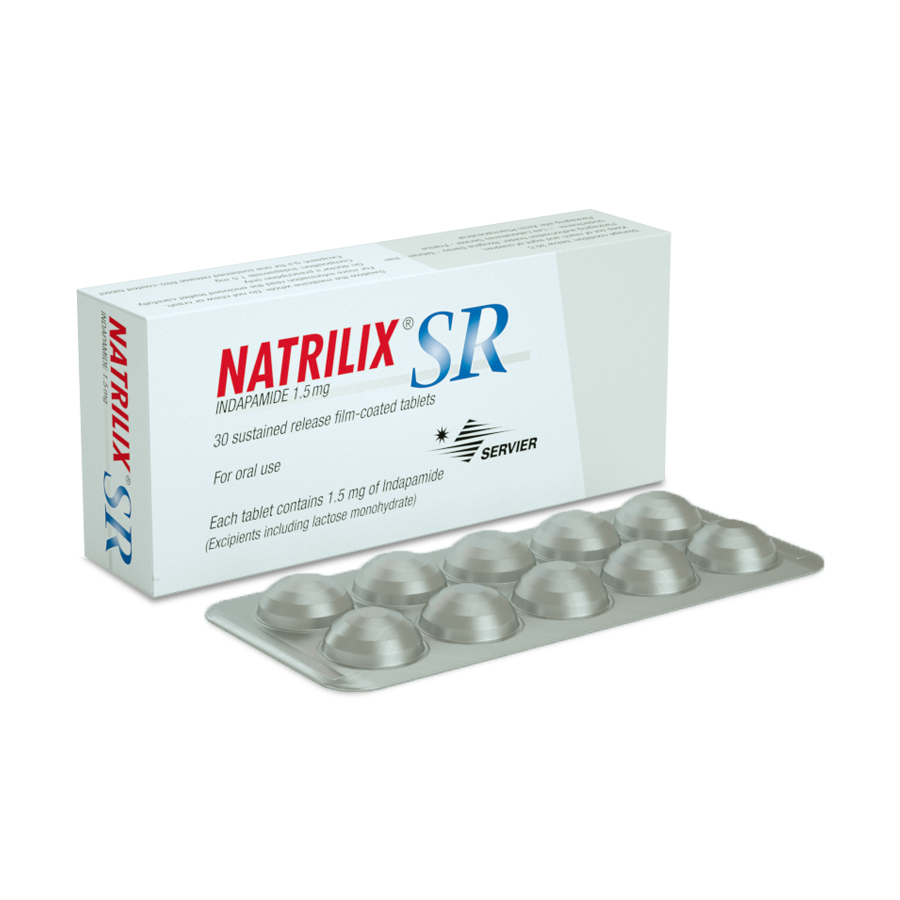This website uses cookies so that we can provide you with the best user experience possible. Cookie information is stored in your browser and performs functions such as recognising you when you return to our website and helping our team to understand which sections of the website you find most interesting and useful.
Natrilix SR
Brand Name :
Natrilix SR
Generic Name :
Indapamide
Partner :
Servier

Download
Natrilix SR Leaflet

What is this drug and what is it used for?
Natrilix SR is a prolonged-release film-coated tablet containing Indapamide as active
ingredient.
Indapamide is a diuretic. Most diuretics increase the amount of urine produced by the kidneys. However, indapamide is different from other diuretics, as it only causes a slight increase in the amount of urine produced.
This medicine is intended to reduce high blood pressure (hypertension) in adults.
How is this drug given?
The recommended dose is one tablet each day, preferably in the morning. The tablets can be taken irrespective of meals. They should be swallowed whole with water. Do not crush or chew them. Treatment for high blood pressure is usually life-long.
Possible side effects
In decreasing order of frequency, side effects can include:
Common (may affect up to 1 in 10 people):
- Red raised skin rash
- Allergic reactions, mainly dermatological, in subjects with a predisposition to allergic and asthmatic reactions
Uncommon (may affect up to 1 in 100 people):
- Vomiting
- Red pinpoints on skin (Purpura)
Rare (may affect up to 1 in 1000 people):
- Feeling of tiredness, headache, pins and needles (paresthesia), vertigo
- Gastro-intestinal disorders (such as nausea, constipation), dry mouth
Very rare (may affect up to 1 in 10,000 people):
- Changes in blood cells, such as thrombocytopenia (decrease in the number of platelets which causes easy bruising and nasal bleeding), leucopenia (decrease of white blood cells which may cause unexplained fever, soreness of the throat or other flu-like symptoms – if this occurs, contact your doctor) and anaemia (decrease in red blood cells)
- High level of calcium in blood
- Heart rhythm irregularities, low blood pressure
- Kidney disease
- Abnormal hepatic function












